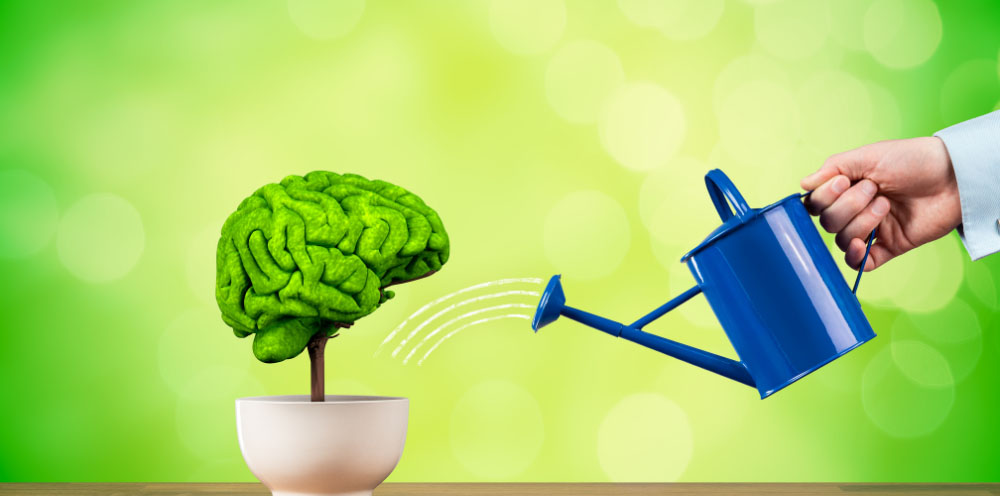Do you happen to forget where you left your keys, or lose your thread while working? Memory problems are common, but fortunately there are ways to improve this ability. In this article, we will present effective methods to improve memorisation and concentration, based on scientific research and everyday practices that everyone can implement in their daily functioning.
Why is a good memory important?

Above all, it is a key aspect of effective working and learning. Not only does it support our ability to absorb information, but it also influences our creativity, reaction speed and decision-making skills. Good concentration allows us to focus on the task at hand and a strong memory enables us to recall information quickly.
Research provides ample evidence of how specific activities can improve the brain functions responsible for remembering. For example, a study published in the British Journal of Nutrition found that people who regularly consumed omega-3 fatty acids had 13% better performance on memory tests compared to those who had a low intake of these components.
In contrast, research published in the Journal of Neuroscience showed that regular aerobic exercise, such as running or swimming, can increase the volume of the hippocampus, the part of the brain responsible for memory, by up to 2% over a year.
Additionally, a study on mindfulness meditation, published in Psychological Science, found that participants who practised meditation for just eight weeks reported a 16% improvement in concentration tests. These results clearly show that a healthy lifestyle and the right habits can significantly improve cognitive abilities.
Natural ways for better brain function

It is worth noting that exercise and a memory-boosting diet are the main factors for improving brain function. There are many natural methods that can help improve cognitive function. From a healthy diet to exercise to relaxation techniques, all can positively affect your mind and make it function better.
1. The importance of a balanced diet
What you eat has a huge impact on your concentration and memory. The brain needs the right nutrients to function at full capacity. A diet rich in antioxidants, healthy fats and vitamins and minerals can support cognitive function.
a) And do you know which foods support memory?
Oily fish – rich in omega-3 fatty acids, which are crucial for brain health. Studies show that people who consume fish regularly have better results in memory tests.
Nuts and seeds – a brilliant source of vitamin E, an antioxidant that can protect brain cells from damage.
Dark chocolate – contains flavonoids, caffeine and antioxidants that improve cognitive function.
Blueberries – full of antioxidants to support brain health and delay brain ageing.
b) Avoid processed foods
Processed foods rich in sugars and trans fats can negatively affect cognitive abilities. Studies show that people who consume large amounts of fast food have significantly worse results in memory tests.
2. Physical activity as key to better memory
Physical activity not only benefits the body, but also has a positive impact on brain function. Regular exercise improves blood circulation, which translates into better oxygenation and delivery of nutrients to the brain. This is very important for improving concentration, memory and overall mental performance. Therefore, it is worth finding ways to be physically active on a regular basis as one of the ways to improve your intellectual capacity and ensure better mental wellbeing.
a) What exercises support memory?
- Aerobic exercise – running, swimming or cycling are great forms of exercise that stimulate the development of new neurons in the hippocampus, the part of the brain responsible for memory.
- Yoga and meditation – we have described the health effects of yoga on the body extensively in this article. Studies show that these forms of activity help to improve concentration and memory while reducing stress levels.
b) How much exercise is needed?
The World Health Organisation recommends at least 150 minutes of moderate physical activity per week. Even daily walking can significantly improve brain function.
3. The role of sleep in brain health
Sleep is an indispensable part of the memory consolidation process. It is during sleep that the brain processes the information acquired during the day and ‘stores’ it in long-term memory.
a) How much sleep does the brain need?
Adults should sleep an average of 7-9 hours per night. Too little sleep can lead to concentration problems, reduced ability to remember and slower reactions.
b) How to improve the quality of sleep?
- Avoid screens (phones, computers) at least one hour before bedtime, as the blue light they emit interferes with the production of melatonin – the sleep hormone.
- Create a consistent sleep routine by going to bed and waking up at the same time each day.
- Provide a comfortable sleeping environment – a dark, quiet and cool room promotes recovery.
Techniques to improve the functioning of the mind

It is not only diet, sleep and exercise that affect memory. There are also psychological and cognitive techniques that help you to remember information better and strengthen your concentration. Therefore, it is advisable to use a variety of brain enhancement methods to improve concentration and memory capacity. The right mental training can bring significant benefits to our mental health. By applying effective cognitive techniques on a regular basis, we can support our brain function and improve the quality of our everyday life.
1. Exercise your mind
Like the body, the brain needs regular exercise to remain fully functional throughout life. Mental exercise is not only a way to keep it in good shape, but it can also stimulate the development of new neural connections, which is key to keeping cognitive abilities at a high level. Regular stimulation of the brain can lead to an increase in neuroplasticity – the brain’s ability to adapt and form new synaptic connections.This process not only improves memory and concentration, but can also delay age-related degenerative processes such as dementia and Alzheimer’s disease.
a) Games and puzzles
- Sudoku – solving number puzzles helps develop logical thinking skills and improves concentration.
- Crosswords – regularly solving crosswords helps to remember new words and improves verbal skills.
- Memory games – apps and games that require memorising sequences or images are an effective tool for improving working memory.
b) Learning new skills develops!
Learning new things is an excellent form of brain exercise. Researchers indicate that learning new skills – such as learning a new language, playing an instrument or a new hobby – can stimulate the formation of new neurons and promote the development of brain connections.
2. Relaxation techniques
Stress is one of the main enemies of concentration and memory. When we are stressed, our brain produces cortisol, which can damage nerve connections.
a) Meditation
Regular practice of meditation can improve concentration and the ability to remember information. Studies show that mindfulness meditation helps reduce stress and increases the volume of the grey matter in the brain, which is responsible for memory.
b) Breathing and breathing techniques
Breathing exercises, such as deep diaphragmatic breathing, help to calm the nervous system, which has a positive effect on concentration and memory. Regular practice of these techniques allows for better control of emotions and stress.
Improve brain function with the right supplementation

Many people turn to dietary supplements to support brain function. However, it is worth remembering that supplementation should only complement a healthy lifestyle, not be a substitute for it.
1. Which supplements support memory
a) Omega-3 fatty acids
Omega-3 fatty acids, especially DHA, are crucial for brain health. Studies show that people who take omega-3 supplements regularly have better performance in memory tests and higher concentration.
b) Phosphatidylserine
Phosphatidylserine is a phospholipid that is a component of neuronal cell membranes. Research suggests that phosphatidylserine supplementation can support memory and improve cognitive function, especially in older people.
2. Herbal supplements for concentration support
a) Ginkgo biloba
Ginkgo biloba leaf extract is one of the most commonly used herbal supplements for memory support. Studies show that it can improve blood flow to the brain, which has a positive effect on concentration and the ability to remember. You can find this valuable ingredient in Endotelio Brain, a dedicated supplement that helps to improve brain function thanks to its ingredients.
b) Bacopa monnieri
Bacopa monnieri is a plant known in Ayurvedic medicine as a memory aid. Studies indicate that its regular use can improve working memory and reduce reaction time.
Summary

Improving concentration and supporting brain function is a process that requires a commitment to various aspects of life – from healthy eating and regular exercise, to mental exercise and adequate sleep. By implementing the methods described here, you can naturally increase your cognitive abilities and enjoy better performance in work, study and everyday life.
Frequently asked questions
How quickly can I notice improvements in memory and concentration?
It depends on the method used. Some techniques, like meditation or mindfulness exercises, can produce results after just a few weeks of regular practice. Others, like a healthy diet or supplementation.Are supplements safe?
Dietary supplements are generally safe, but it is always a good idea to consult your doctor about taking them, especially if you are taking other medications. High doses of some supplements can have side effects.Does meditation actually improve brain function?
Yes, research shows that regular mindfulness meditation can improve concentration and memory skills, as well as reduce stress, which often negatively affects cognitive function.


